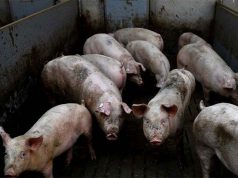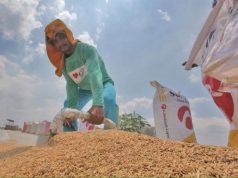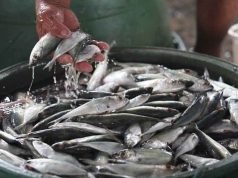Empowering the country’s agricultural sector and promoting breastfeeding are among the factors that could give children proper nutrition in aid of cognitive development.
These were the arguments that local Twitterverse presented against a senator’s remarks that the Philippine Carabao Center and the National Dairy Authority are to be “partly” blamed for Filipino children’s supposed dullness.
Yesterday, a senator at a hearing questioned what she deems as the Department of Education‘s “failed” implementation of its “Gulayan sa Paaralan” program, an organic vegetable gardening project among school communities.
“Kaya ‘yong mga estudyante niyo naging bobo na, kasi hindi niyo tinulungan sa proper nutrition. Hindi naman reason ‘yong quality of teachers alone, but the proper nutrition of school children. Especially the poor children,” Sen. Cynthia Villar said, addressing a DepEd representative.
She then criticized the PCC, an attached agency of the Department of Agriculture, and claimed that it prioritizes the supposed acquiring of private vehicles instead of allocating funds for improving the country’s dairy production.
Villar also claimed that “99%” of dairy products like milk are “imported” to other countries while only “1%” is reserved for the Philippines.
“S’yempre ‘pag mahirap ang bata, kaya bang bumili ng imported? ‘De hindi. So wala nang nagdi-drink ng milk na mahihirap na mga bata. Kaya partly to blame kayo sa kabobohan ng mga bata,” she said.
“You are partly to blame kasi talaga ang mga bata pinapainom ng milk para tumalino. Ang dairy program niyo ay partly to blame doon. Kaya hindi lang kasalanan ng DA, kasalanan din ninyo,” Villar said, referring to the PCC and the NDA.
The PCC is mandated to “conserve, propagate, and promote the Carabao as a source of milk, meat, draft powder and hide to benefit the rural farmers.”
Meanwhile, the NDA is created to “ensure the accelerated development of the Philippine dairy industry through policy direction and program implementation.”
What Twitterverse thinks
Some Filipinos, however, were not convinced that two agencies under the Department of Agriculture should be blamed for children’s perceived dullness in connection with the country’s dairy production.
A Twitter user pointed out that breast milk is still the best option when it comes to improving a child’s cognitive development.
“Push for exclusive breastfeeding in infancy… and give better supplementary food and correct eating habits!” she wrote.

A stock photo of a mother breastfeeding her child. (Unsplash/Jordan Whitt)
“Why not promote and support breastfeeding and the like if issue yung child development sa milk consumption, ‘di ba?” another Twitter user said.
Breast milk has been proven to increase certain chemicals in a baby’s brain that are linked to neurodevelopment, Science Focus reports.
The article noted that the milk “increases the amount of biochemicals that are important for brain growth and development, which could provide an early marker of improved cognition.”
Carabao milk, meanwhile, has its own benefits as well since it is considered “more nutritious” than the regular cow’s milk, according to a registered dietician nutritionist.
It has “58% more calcium, 40% more protein, and 43% less cholesterol” than cow’s milk, although its direct link with cognitive development has not yet been reported or made known.
A Twitter user also pointed out that a child’s poor cognitive performance cannot be based on milk consumption alone as there are other factors that contribute to such a predicament.
“Malnutrition and poor cognitive growth stem from a number of factors including poverty, lack of access to food/education/parental guidance, poor governance and corruption,” she wrote.
Another Filipino commented that the country’s agriculture sector should be thoroughly empowered so that it could provide sufficient nutrition to children.
“Milk isn’t the sole food that can provide proper nutrients to children. Alam mo ang pinakamalaking factor to boost nutrition? Agriculture,” the Twitter user said.
The country’s growth in agriculture, supposedly its best asset, fell “flat” in 2019 amid the outbreak of the African Swine Fever that heavily affected the livestock sector.
Last September, advocates of rice farmers revealed how the latter has been struggling to make ends meet ever since the implementation of the Rice Tarrification Law.
It allows other countries to import their rice at a cheaper price and heavily compete with local farmers’ produce.










